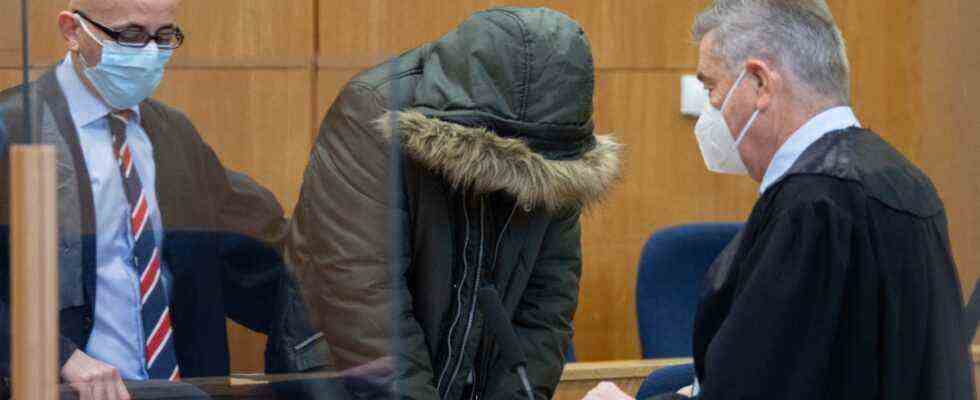Anyone who deals with the abysses of humanity always learns things that one does not want to know. That there are different kinds of torturers, for example. Category one: those who take orders, who stubbornly act according to orders and turn off their conscience. Category two: those who have doubts, who talk themselves into doing what they do and eventually quit the job. And category three: the doers of conviction and sadists who think it’s right or even like what they’re doing. There are also different handwritings of torturers: one hits, the other uses electric shocks.
In Frankfurt, a man is now on trial who is said to have developed his own method of torture: According to the federal prosecutor’s indictment, he poured alcohol on his victims’ genitals and then set them on fire.
It’s hard to believe what survivors from the torture chambers of the Syrian ruler Assad say about this man. And yet, several witnesses report how the accused burned the penis of a 14-year-old boy, barely a child, in the emergency room of Military Hospital No. 608 in Homs in the summer of 2011. “Let’s see if you’re a man,” he is said to have said. He also tortured an adult man in this way and watched his penis burn.
Former colleagues of the defendant report that he boasted that he had invented a new method of torture. According to the indictment, the Homs torturer deprived the prisoners of the opportunity to reproduce. According to the International Criminal Code, this is a crime against humanity. But it also robbed men of their sex lives and self-esteem.
What weighs even more legally: the man is said to have had a prisoner who had defended himself held by henchmen and then killed him with lethal injection to demonstrate his power in front of the other prisoners. He will send him to heaven, where the virgins are waiting, he is said to have said, according to witnesses. The prisoner asked to greet his mother, then he died.
Alaa M.’s colleagues couldn’t believe it when he was arrested at his place of work
The Syrian Alaa M., 37, is on trial before the Higher Regional Court in Frankfurt for all these acts. Federal prosecutors have charged him with the murder of one and the torture of 18 people. The frightening thing: the man is a doctor in Germany. He has been practicing here for years. He lives in Hesse with his wife and two small children, earns very well and soon wants to buy a house. A successful career. His colleagues valued him. You couldn’t believe it when he was arrested at his place of work in June 2020.
This feeling also creeps into the courtroom in Frankfurt: a dapper gentleman in a dark suit and white shirt peels off the anorak, the hood of which he has pulled down over his face. Clean-shaven, with a dark, calm voice, he speaks German relatively well and has been learning it for many years, even when he was still living in Syria. The accused appears calm and level-headed, only occasionally making relevant comments, not too much, not too little. You can imagine him doing his rounds in the hospital. This man is said to have tortured in such an unimaginable way?
“We will refute the charges,” says his attorney Ulrich Endres. “The evidence presented by the Attorney General does not stand up to scrutiny.” Alaa M. was not even in a military hospital in 2011 and 2012, when he is said to have tortured.
Alaa M. came to Germany in 2015, not with the large trek of refugees, but by plane with a visa from the German embassy, as a doctor, a profession that is lacking in Germany. He came, settled down, quickly found work. The Lower Saxony Medical Association awarded him the title of specialist in orthopedics and trauma surgery in 2019. A quiet, unobtrusive, sensitive colleague, one of his employers has said. A successful integration – at first glance.
He is said to have insulted patients as “cockroaches” and “terrorists”.
On the other hand, Alaa M. seems to be a staunch supporter of the Assad regime, which treated patients who came to the military hospital like enemies, kicking them in the face or on suppurated wounds, and even an epileptic. The man died after the abuse. Witnesses repeatedly reported his specialty of dousing prisoners with alcohol and then setting them on fire. The two prosecutors accuse Alaa M. of calling the patients “cockroaches” and “terrorists” and wanting to demonstrate his absolute power over the prisoners. The man is in custody because he is at risk of absconding. He had contacted the Syrian embassy to flee the country.
Alaa M. comes from an established Christian family. The mother a teacher, the father a tax consultant, one feels connected to the Assad regime. He himself studied medicine in Aleppo from 2003 to 2009 and passed with the grade “good”, the specialist training with “very good”. Then he wanted to deepen his knowledge and go abroad, he says. The court reads his testimonies. A diligent, reliable and dedicated doctor, he is. “His behavior was exemplary.” The Homs Health Department writes: “He is characterized by good character and a good reputation.”
The federal prosecutor sees the character slightly differently. With the indictment against Alaa M., one is also fighting for the validity of the principle of universal jurisdiction and against impunity for the most serious crimes, explained senior public prosecutor Anna Zabeck. She thanked the survivors for their courage in participating in the prosecution as witnesses.

